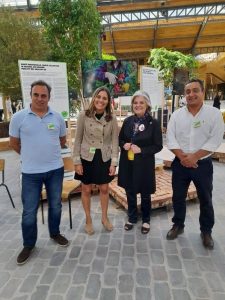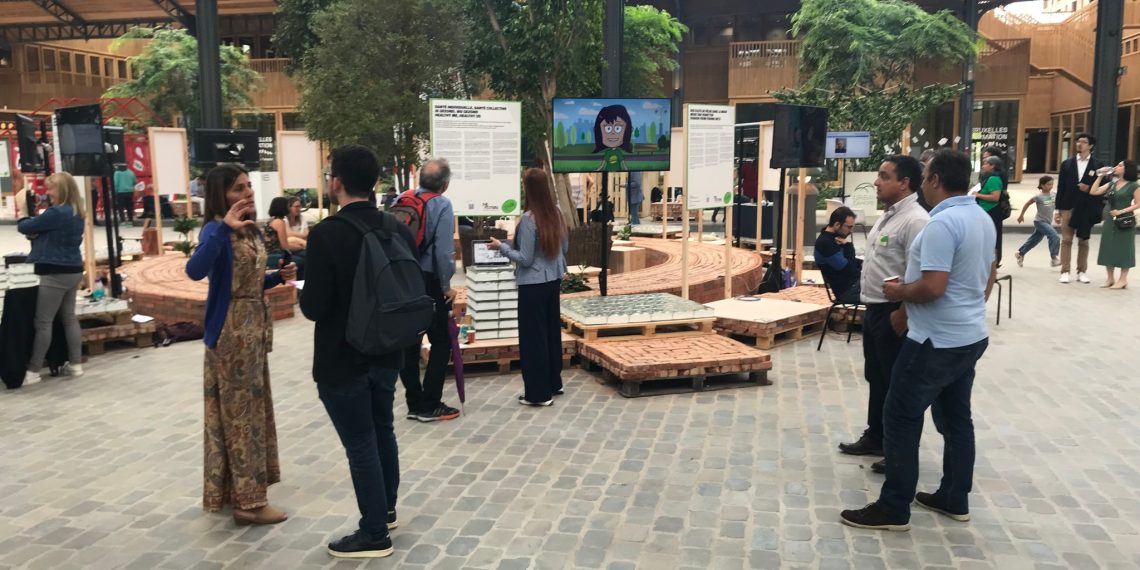Infographics, games, music or videos are some examples of the educational resources available on the platform Photodentro PAFSE, which aims to support learning in STEM – science, technology, engineering and mathematics. Developed as part of the PAFSE – Partnerships for Science Education project, this repository was one of the results presented by the consortium during the first edition of the “ New European Bauhaus” (NEB) festival, promoted by the European Commission in June (Brussels).
The PAFSE project, in which INESC TEC participates, was one of the 100 European projects selected to participate in the exhibition component of NEB, which included virtual reality, 3D and interaction activities between different European actors. Elisa Ferreira, Commissioner for Cohesion and Reforms, and Adriani Botez, from the Be Able association, were some of the guests who visited the exhibition space; their contribution will be of greater relevance to better understand the needs of people with disabilities, thus ensuring that everyone can benefit from the results of the project.

The Photodentro PAFSE repository is one of the results, and it was presented during the consortium’s participation in the NEB event. It is a platform that aggregates educational resources, organising and classifying them, with the objective of contributing to the digital learning of STEM, with a particular focus on public health education. The solution also provides a way for all involved to register on the platform, in order to upload, classify, document, describe and publish new resources. All learning tools are available for free.
Another outcome presented during NEB was e-me (e-me4all.eu), a digital education platform that promotes the collaboration between students and teachers. This solution was initially developed by the Government of Greece and has now been customised under the PAFSE project. In addition to providing digital tools to support teaching and the learning process, this platform allows students to create e-portfolios or presentations, and teachers to monitor and follow up on tasks.
The PAFSE aims to create partnerships between schools, universities, research centres, laboratories, companies, associations, civil society representatives, etc., involving them in endeavours to improve education in STEM. The project focuses primarily on science education on public health issues, i.e., infectious diseases and epidemics, childhood obesity, road accidents, or cancer. At the beginning of the next school year, 45 schools in Portugal, Cyprus, Greece, and Poland will welcome pilots involving teachers of science, mathematics, physics, chemistry, citizenship, and ICT.
The project features five Portuguese institutions: Lisbon’s Universidade NOVA – National School of Public Health (project leader), INESC TEC, University of Minho, Lisbon Institute of Engineering and Prevenção Rodoviária Portuguesa, and is funded by the European Commission, through the Horizon 2020.




 News, current topics, curiosities and so much more about INESC TEC and its community!
News, current topics, curiosities and so much more about INESC TEC and its community!